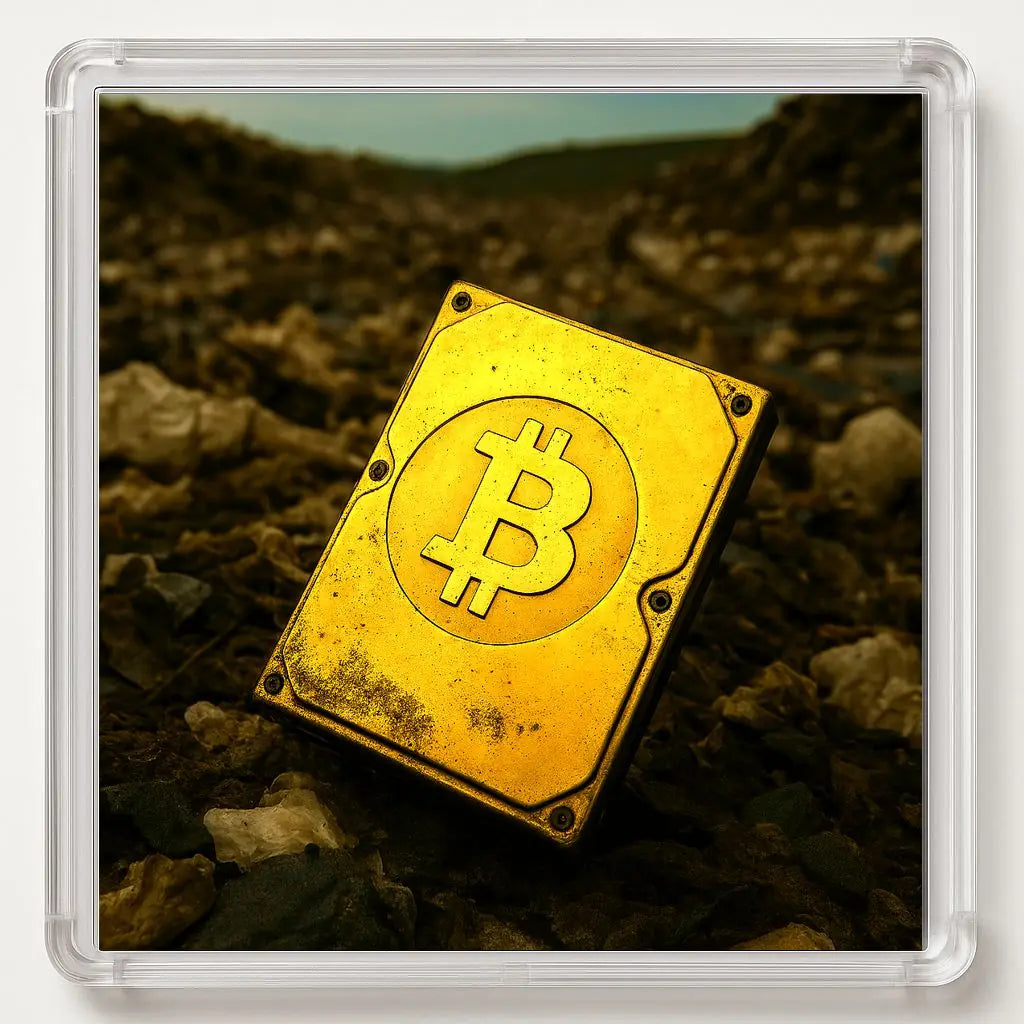
THE MAN WHO THROWN AWAY 742 MILLION
Share
There are discreet, silent tragedies that don't make a sound, but that leave an indelible mark on digital history. That of James Howells belongs to this category. No blood was shed, no building collapsed, no high-profile trial made the headlines. And yet, somewhere in a South Wales landfill, a small gray hard drive still lies. A soulless, anonymous rectangle, forgotten among tons of waste. Inside, a fortune in Bitcoin. 8,000 units. The equivalent of €742 million.
We have to go back to 2013. James is an enthusiast. An ordinary guy, without a suit, without a yacht, without millions. He tinkers, he codes, he's interested in this strange currency that's causing a stir on forums. He mines a few. A lot, even. At the time, no one cares. Bitcoin is a game, an exercise for idealists, a line of code that still interests no one. Then comes the day he decides to do some tidying up. A spring cleaning. He empties drawers, sorts cables, erases traces of former lives. And without paying attention, he throws away an old hard drive, convinced it contains nothing important.
Except he was wrong. That disk wasn't empty. It contained the private keys to a Bitcoin wallet. A string of words, invisible but decisive. A handful of lines that opened the door to immeasurable wealth. And he had just closed that door himself. For good.
By the time James realizes his mistake, it's already too late. The garbage truck has come and gone. The landfill has buried everything. The machine is running, impersonal, administrative. There's nothing more to do, he's told. Yet he doesn't give up. He begins an absurd, excessive, obsessive battle. He offers to explore the site, to search the mountains of waste, to mobilize drones, robots, mechanical arms. He promises to finance the operation, to share the profits with the city. Nothing works. The municipality refuses, again and again. Too dangerous. Too expensive. Too uncertain.
Twelve years later, the fight ends with a harsh verdict. The courts close the door on him. The disk is considered waste, and therefore public property. And Bitcoin? It doesn't exist in the eyes of the law. It's a concept, not a tangible asset. James, however, takes the blow. Bitter. Tired. Broken. He watches the garbage trucks go by. He knows that a few meters underground, in a shell of plastic and mud, lies what he will never find again. Not just a fortune. But another life.
You could laugh at it. Call it a modern fable, a technological metaphor, an extreme example. But it's not a tale. It's real. And that's the price of digital sovereignty. Bitcoin sets you free, but offers no helping hand. It doesn't forgive. It doesn't forget. It doesn't automatically double-backup. With total control comes total responsibility. James Howells lost more than a hard drive. He lost the memory of an access. The trace of a treasure. He reminds us that in this new world, our wealth is no longer contained in a safe, but in a sequence of words. And that a single distraction can tip an entire life into nothingness. So we back up. We triple-check. And most importantly, we never hastily clear our desks again.
👉 Also read:
- THE DAY BITCOIN CHANGED EVERYTHING
- IS TAO THE NEW BITCOIN?
- ARTIFICIAL INTELLIGENCE: THE END OF WORK OR THE END OF HUMANITY?
